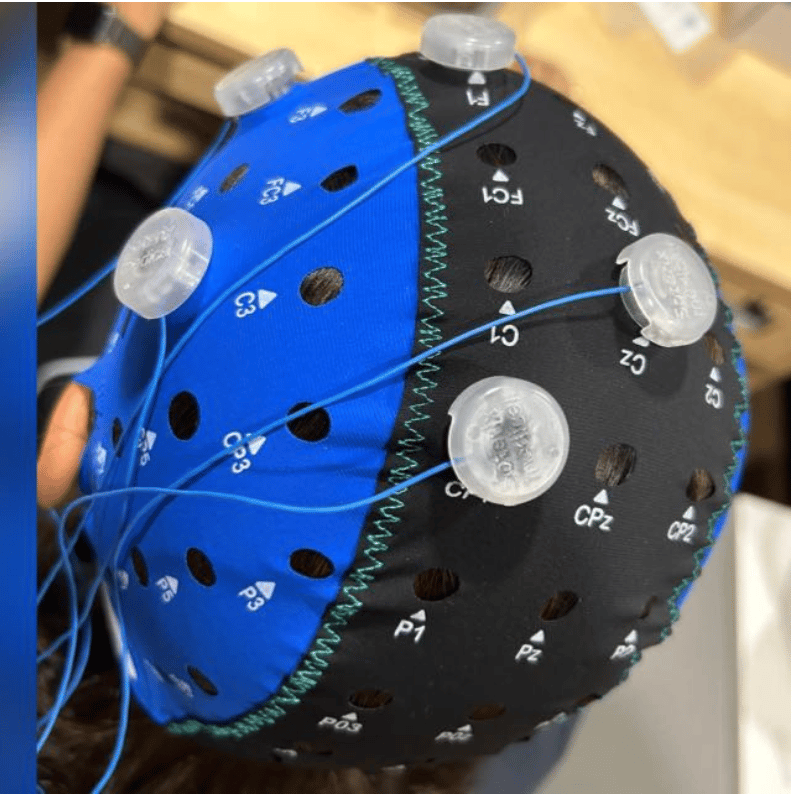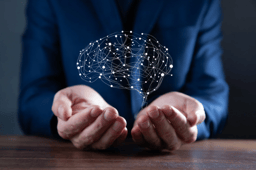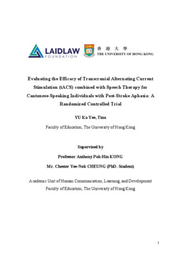Summary of my research project
This summer research aims to evaluate the effectiveness of transcranial alternating current stimulation (tACS) in enhancing speech and language abilities for post-stroke Cantonese-speaking individuals with aphasia.
Aphasia is a neurological disorder caused by brain injury, and it can significantly impact an individual’s ability to express and understand language, which may create barriers to social interaction and quality of life. While traditional speech therapy is effective, the integration of neuromodulation techniques, such as tACS, holds promise for enhancing therapeutic outcomes by directly targeting brain networks involved in language processing.
The research employs a randomized controlled trial (RCT) framework. 11 participants were recruited this summer and randomly allocated to either the experimental group, receiving real tACS combined with speech therapy (ST), or the control group, undergoing sham tACS alongside ST.
The clinical trial consists of four stages: baseline assessment, intervention, post-treatment assessment, and one-month follow-up. Participants will undergo two types of evaluations during the baseline, post-treatment assessment and one-month follow-up. The first is a language assessment utilising the Cantonese Aphasia Battery (CAB). The second is an EEG assessment, which includes tasks such as resting-state measurements, delayed confrontation naming, divergent naming, and discourse production to monitor brain activity. The intervention consists of tACS, using a dual-site 3x1 HD montage with a net intensity of 2 mA (1 mA per stimulating electrode and 0.33 mA per returning electrode) delivered in-phase, alongside Semantic Feature Analysis (SFA), a language therapy technique. The intervention protocol includes 10 sessions over two weeks, with each session lasting 30 minutes, conducted once daily for five days per week.
Data will be analyzed using MATLAB and SPSS to evaluate changes in language performance. If successful, this neural stimulation technique might be the missing key to unlocking trapped language abilities in stroke survivors.



Please sign in
If you are a registered user on Laidlaw Scholars Network, please sign in